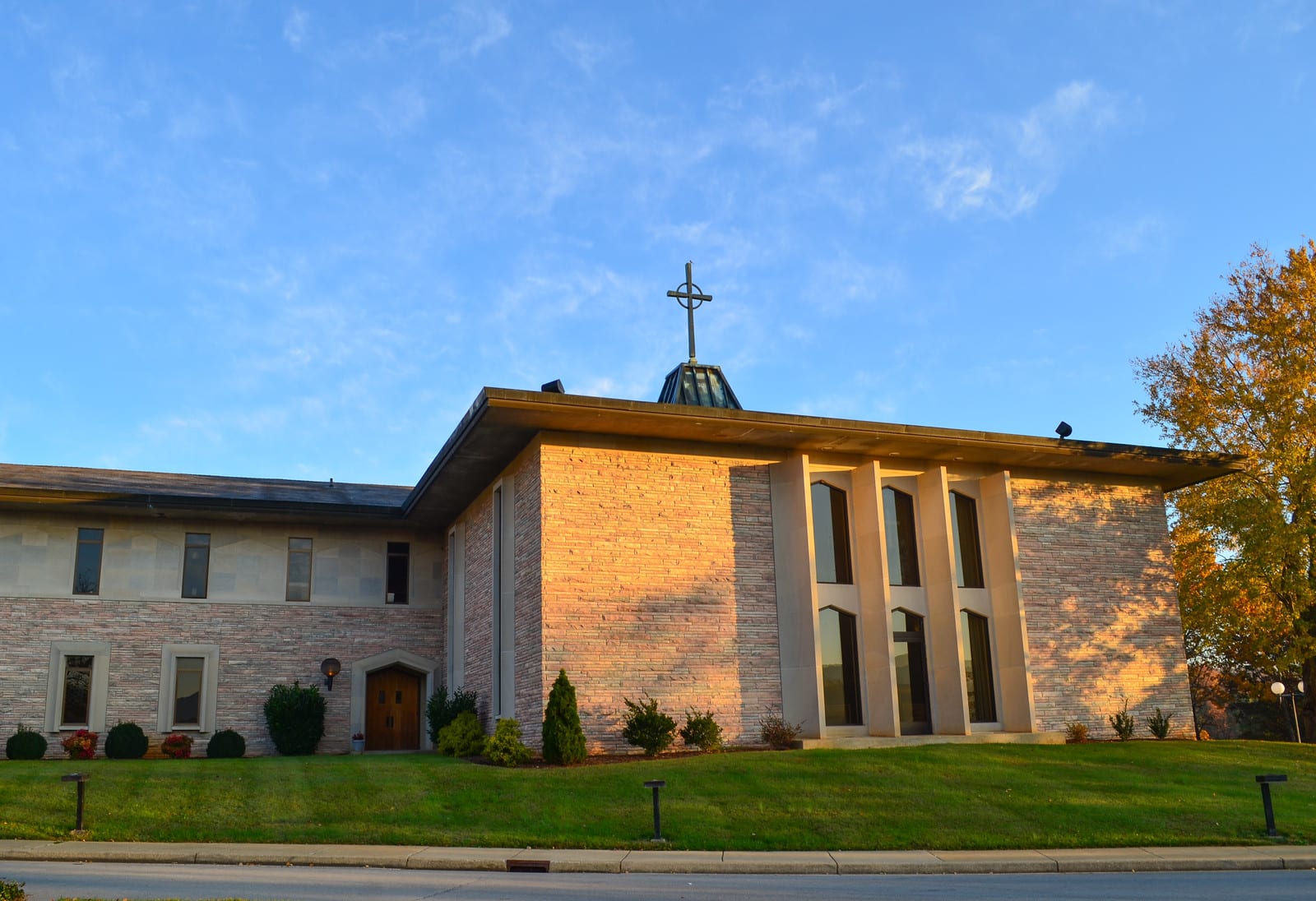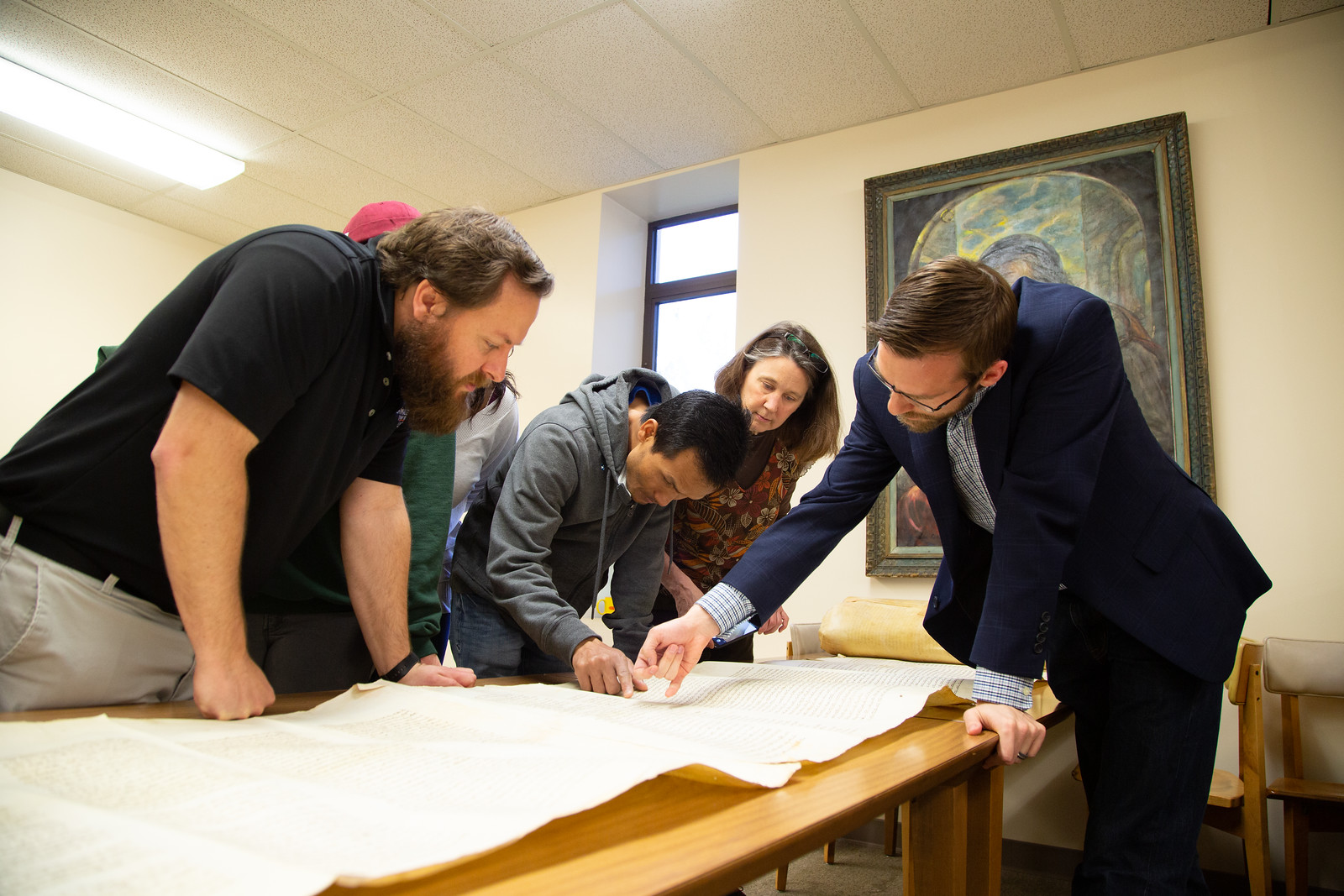Preparing for future graduate study?
Emmanuel’s Master of Theological Studies (MTS) is a two-year, 49-credit hour academic degree designed for students who wish to pursue further study in a professional field outside of traditional ministries and desire a theological background before entering a graduate or professional program. If you want to pursue further academic work, you will need to have the background and training that provides a deep well of resources for you to draw on. Look no further than the MTS at Emmanuel Christian Seminary at Milligan.
Choose to focus your studies in Biblical Studies, Christian Theology, Church History, Historical Theology, New Testament, or Old Testament.

Get ready to change lives
Concentrations
The MTS with a concentration in Biblical Studies concentration will allow students to complete a concentration with a combination of Old Testament and New Testament electives.
The MTS with a concentration in Church History is traditionally pursued by those planning further graduate studies in the field of church history. Church history is the study of the formation of Christian identity and ecclesial life in the light of the apostolic witness of the New Testament and the shaping influences of twenty centuries of history. It embraces both the story of the Christian faith as it has taken root in diverse historical and cultural settings and the actual development of the corporate life of the Church in both its particular and global manifestations. Thus church history is by nature a contextual and ecumenical theological discipline, with the constructive task of evaluating critically the Church’s ongoing quest to embody Jesus Christ in the world through its community, its ministry, its theology, its worship and sacraments, and its spirituality and ethics.
The MTS with a concentration in Christian Theology is traditionally pursued by those planning further graduate studies in the field of Christian theology. The Area of Christian Theology is most concerned with contemporary Christian theology as a discipline that attends to all aspects of Christian life under the triune God. The area draws upon the rich theological resources of the Christian tradition across cultures to respond to life’s persistent questions and spiritual conditions in ways that aspire to salvation, hope, and justice in the world. All disciplines of human understanding may be brought to bear on its questions.
The MTS with a concentration in Historical Theology is traditionally pursued by those planning further graduate studies in historical theology. Electives for this concentration can be courses in either Christian Theology or Church History. The Area of Christian Theology and the Area of Church history are dedicated to the study of theology as central to Christian tradition while deeply engaging its historical and cultural contexts and implications for contemporary Christian life.
The MTS with a concentration in New Testament is traditionally pursued by those planning further graduate studies in the field of New Testament. The New Testament area offers advanced study of the writings of the New Testament, their language, social-historical background, literary features, and theology. Courses in this area give attention to the Judaic and Graeco-Roman matrix of these writings, their religious teachings within their original contexts, and their theological unity and variety.
Exegesis of the text provides a foundation for the larger task of theological interpretation of the New Testament as sacred scripture. Courses emphasize the importance of both understanding and appreciating the use of these documents throughout the history of the church and reading them afresh as Spirit-filled writings that continue to shape the Christian life corporately and individually.
The MTS with a concentration in Old Testament is traditionally pursued by those planning further graduate studies in the field of Old Testament. The Old Testament area offers advanced study of the books of the Hebrew Bible/Old Testament, including their text and language, social-historical background, literary character, and theology. The Deuterocanonical/Apocryphal books, Dead Sea Scrolls, and other important Jewish writings of the Second Temple period are also studied. Courses give attention to the ancient Near Eastern and later Hellenistic settings of the biblical books, their religious ideas and teachings within their original contexts, and their theological significance for Christian faith.
Exegesis is emphasized as the foundation for the larger task of theological interpretation of the Hebrew Bible as Christian sacred scripture. Accordingly, courses in Hebrew language and in exegesis are central, and courses in Aramaic, Ugaritic, and Akkadian are offered on a cyclical basis to complement the Old Testament area’s curriculum.
Course Requirements
View all details and course requirements for this program in the Milligan University Catalog. The Milligan University academic catalog is the official, authoritative source for all academic requirements and policies. Any discrepancies in curricular requirements from other sources will default to the Catalog.


